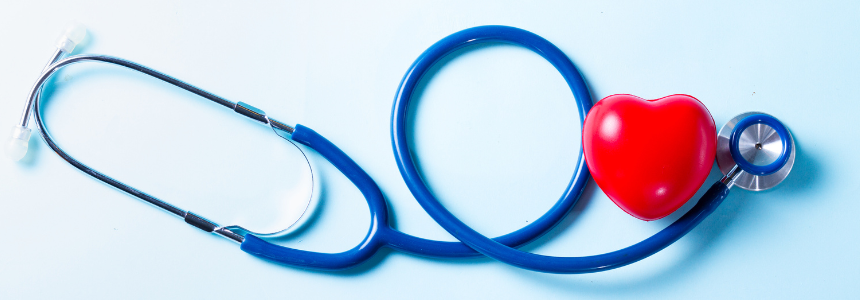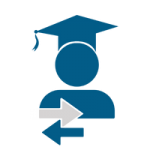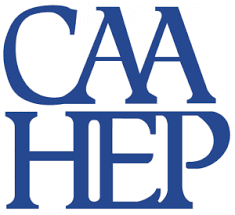
MEDICAL ASSISTING
Make a difference, not just a living.
The Medical Assisting curriculum prepares multi-skilled health care professionals qualified to perform administrative, clinical, and laboratory procedures.
Course work includes instruction in scheduling appointments, coding and processing insurance accounts, billing, collections, computer operations; assisting with examinations/treatments, performing routine laboratory procedures, electrocardiography, supervised medication administration; and ethical/legal issues associated with patient care.
Graduates of CAAHEP-accredited medical assisting programs may be eligible to sit for the American Association of Medical Assistants’ Certification Examination to become Certified Medical Assistants. Employment opportunities include physicians’ offices, health maintenance organizations, health departments, and hospitals.
Degree & Pathway Completion Plans
View what classes you need and when you can take them to complete a degree, diploma, or certificate in Medical Assisting.

Where Can I Transfer?
Looking to transfer to a university after you complete your degree at Carteret CC? Good news! Carteret CC has university transfer agreements for students who gradate with an Associate of Applied Science degree in Medical Assisting to:
East Tennessee State University
Cabarrus College of Health Sciences
PROGRAM CONTACT
Vonda Godette
Chair of Medical Assisting
Phone: (252) 222-6168
Email: godettev@carteret.edu
PROGRAM OUTCOMES, STANDARDS, & ACCREDITATION
DIPLOMA OUTCOMES
2020 Retention
Threshold: >=60%
Carteret CC: 91.67%
2020 Placement
Threshold: >=60%
Carteret CC: 81.82%
The Medical Assisting Diploma Program at Carteret Community College (Morehead City, NC) has a retention rate of 91.67% for the admission cohort that entered in 2020.
The Medical Assisting Diploma Program at Carteret Community College (Morehead City, NC) has a job placement of 81.82% for the 2020 graduate year.
(From 2022 Annual Report)
PERFORMANCE STANDARDS
Medical Assistant duties involve cognitive, sensory, affective, and psychomotor performance requirements. Therefore, the following activities are examples of the kinds of activities that a student in the Medical Assisting program would be required to perform in order to successfully complete the program. The examples used are not all inclusive.
Critical thinking: The medical assisting student must possess critical thinking skills sufficient for clinical judgment. For example, the student must be able to use critical thinking as a basis for identifying/resolving patient problems.
Interpersonal skills: The medical assisting student should possess interpersonal skills sufficient to interact with individuals, families, and groups from a variety of social, emotional, cultural, and intellectual backgrounds. For example, the student should be able to establish a helping relationship with patients, families, and colleagues.
Communication: The medical assisting student must possess communication skills sufficient for interaction with others in verbal and written format. Communication abilities including speech, hearing, reading, writing, language skills and computer literacy are required. For example, the student must be able to read and convey actions and patient responses to health care team members, both verbally and in writing.
Mobility: The medical assisting student should possess physical skills sufficient to move from room to room and maneuver in small spaces. For example, the student must be able to move in patient rooms, work spaces, and treatment areas.
Motor skills: The medical assisting student should possess gross and fine motor skills sufficient to provide safe and effective care. For example, the student must be able to use equipment, administer injections, insert catheters, and other assigned duties under the supervision of the physician.
Hearing: The medical assisting student should possess auditory skills sufficient to monitor and observe health needs. For example, the student must be able to hear monitor alarms, emergency signals, and cries for help.
Visual: The medical assisting student should possess visual skills sufficient for observation of patient health changes. For example, the student must be able to observe patient responses, see a change in skin color, and read a scale on a syringe.
Tactile: The medical assisting student should possess tactile skills sufficient to assist physician in a physical assessment. For example, the student must be able to palpate a pulse.
Weight-bearing: The medical assisting student should possess the ability to lift and carry up to 25 pounds on a weekly or daily basis. For example, the student must be able to position and transfer patients.
Cognitive skills: The medical assisting student must possess the ability to organize responsibilities, make decisions, and make accurate mathematical calculations. For example, the student must be able to evaluate patient complaints.
Occupational exposure: The medical assisting student should possess the ability to protect self and others by implementing appropriate precautions due to possible exposure to communicable disease and/or body fluids, toxic substances, and medicinal preparations. For example, the student may encounter a patient with Hepatitis B or AIDS and must be able to use standard precautions. When a health problem occurs that results in multiple absences from class, lab, or clinical or injury impedes meeting the performance standards for a period of time, the medical assisting student is required to bring documentation from the physician or other healthcare provider noting the student can safely resume activities in the program. This documentation will be used to help determine if the student can return to class, lab, and/or clinical course requirements.
PROGRAM ACCREDITATION
Carteret Community College Medical Assisting Program is accredited the by the Commission on Accreditation of Allied Health Education Programs (CAAHEP) on recommendation of the Medical Assisting Education Review Board (MAERB). Upon successful completion of the Medical Assisting program, the graduate is eligible to sit for national certification through the American Association of Medical Assistants to become a Certified Medical Assistant CMA (AAMA). Employment opportunities include physicians’ offices, health maintenance organizations, health departments, and hospitals.
The Medical Assisting program begins once a year with the fall semester. Potential applicants should follow the admission requirements and specific deadlines available through the Student Enrollment Resource office.
The Carteret Community College Medical Assisting Diploma program is accredited by the Commission on Accreditation of Allied Health Education Programs (www.caahep.org) upon recommendation of Medical Assisting Education Review Board (MAERB). Graduates of accredited programs are eligible to take the American Association of Medical Assistants (AAMA) certification exam.
Commission on Accreditation of Allied Health Education Programs
25400 US Highway 19 North, Suite 158
Clearwater, FL 33763
727-210-2350
www.caahep.org




